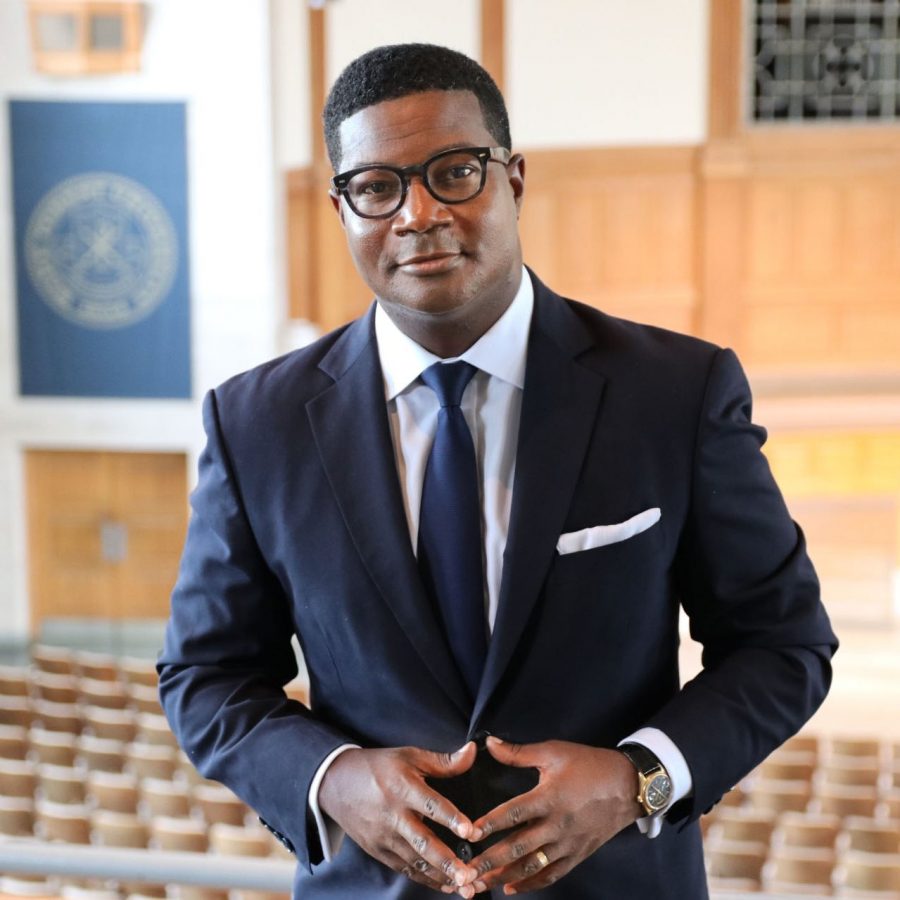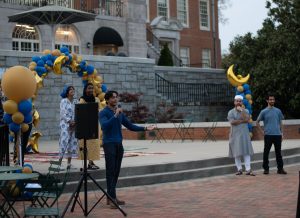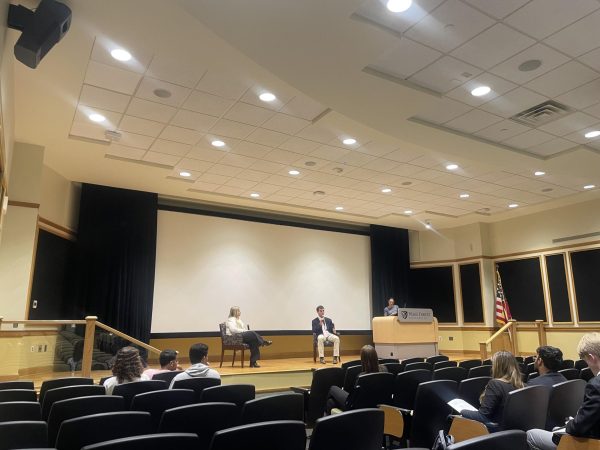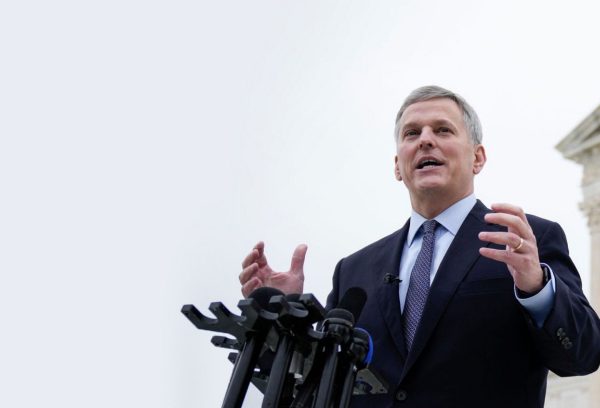Deacon Profile: Jonathan Lee Walton
October 14, 2021
Jonathan Lee Walton has been Dean of the School of Divinity, the Presidential Chair of Religion and the Dean of Wait Chapel since 2019. He earned his Ph.D. in divinity at Princeton Theological Seminary and served as the Pusey Minister in the Memorial Church of Harvard University. Walton is an author, religious scholar and advocate for social justice who is seeking to foster robust communities of faith, especially on Wake Forest’s campus. His comments have been edited for brevity and clarity.
What led you to Wake Forest?
What led me to Wake Forest was the chance to join the work of this Divinity School. Wake Divinity is a community that is unapologetic about its commitment to fostering agents of justice, reconciliation and compassion. It also does the work of training social architects — people who imagine designing a world of hope, of healing and of equity, animated by their faith. When presented with an opportunity to not only join this community but become the dean of the faculty, obviously that inspired me. I also was thrilled to be offered the challenge to activate Wait Chapel for the entire university community as the inaugural dean of Wait Chapel.
I am a scholar of American religion, and there’s not a scholar of American religion that is not familiar with the work of Nathan Hatch and his classic book “The Democratization of American Christianity”. Also, the founding dean of Wake Forest School of Divinity, Bill Leonard, had been a mentor of mine for decades, and we’ve had a close relationship and friendship. When I led the Memorial Church at Harvard, I would bring him to preach every year. He would often come with a group of board of visitor members and people affiliated or associated with Wake Divinity. So I had the pleasure of knowing people from this community prior to my appointment.
What is your vision for divinity education, specifically at Wake Forest?
In our classes, in our chapel services and through our programs such as food, health and ecological wellbeing, we’re really doubling down on matters of equity; matters of racial and gender justice and health equity.
By now, the world has been made aware of the ways in which social and structural inequities are so baked into the system that, during a time like the pandemic, we see it exacerbated in terms of the ways that individuals are impacted by COVID-19. So, we need to find solutions: something like our food, health and ecological wellbeing concentration here at Wake Divinity. We’ve had a focus on those issues, and we’re hoping to continue to scale that up. To that end, we hired a new director for that program: Melanie Harris.
When we think about social determinants of health, we think in terms of food scarcity, housing, access to quality health care, education and also healthy, robust communities of faith. When we consider all of these social determinants of health together, we want to make sure that we are training religious leaders that take a holistic approach to the human condition. We’re not just concerned about your heart and your soul — we’re also concerned about your access to quality food, your access to affordable housing and your access to quality education.
What do you see as the role of faith in young adults in the 21st Century?
We can think about what we’re doing in the larger community, in terms of the southeastern region and what we’re trying to do here as it relates to our curriculum; and the courses we teach. So, then, what might we contribute to the larger spiritual life of the campus? It is important to help students to see and understand the power of human and spiritual connection and inspire their moral imaginations.
There are multiple ways that we can do this. One way is through art, and the stories we tell or narrate. We’ve partnered in Wait Chapel, for instance, with Christopher Gilliam (from the Music Department) who now is working to revive the singing of sacred music as a part of the chancel choir.
We also hired Joshuah Brian Campbell, an Oscar, Emmy and Golden Globe-nominated writer and director. Joshuah is now the new director of the University Gospel Choir. So we’re really trying to revive music in Wait Chapel because we understand that music is an essential part of spiritual growth and development. We’re also working with Wake the Arts on several joint efforts, which includes supporting them and the theater program.
What are your goals as Dean of the Chapel and the Divinity School, and what impact do you hope to leave on Wake Forest?
I want to help foster spaces that are defined by grace. In my religious tradition we have this conception of grace which is considered unmerited — not earned. It’s what God gives us.
At a high-powered university like Wake Forest, everyone is always looking next to them in comparison. Where do I rank? Where do I stand? How can I be the “best”? That may be one of the reasons people refer to this place as “Work Forest”.
I want to help create more spaces where students understand that they are not defined solely by their work, and they aren’t defined solely by a ranking or some sort of quantitative measure — I want them to understand they are special and blessed and unique and have their own individual contributions to make on this planet, because God made you unlike anybody else for a reason.
We all want to be “successful.” We all want to be accomplished in our fields and every field of human endeavor. I do, too! But at the end of the day, we’re more than our titles. We’re more than our positions. We’re more than our pedigrees and we’re more than our CVs.
When all of that’s gone, who are we? For me, if people could just say, “when all that’s gone, I’m still enough because I’m a child of God,” that’s what I want.
Could you tell me more about your ideas for “fostering spaces of grace?”
I want to help people see one another as so much more than their accomplishments or their resumés. People are so much more than that! They have so much more to offer the world and offer others in relationships than some of the things that we tend to privilege on a campus. And so, I want to create spaces of grace.
When I say “help create these spaces,” I do think it’s important for me to acknowledge that I was quite intentional using that language because there are incredible people —like the Chaplain’s Office and the University Chaplain Tim Auman — that have been doing that work here for decades. So, in some ways I’m here to help support them and help enrich the work that they have been doing.





















